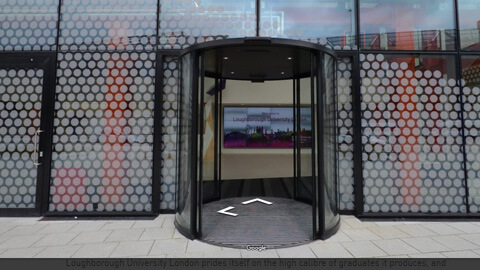Institute for Creative Futures
The Institute for Creative Futures blends leading research with cutting-edge postgraduate programmes in Design Innovation, Communication and Media, and Creative Industries. The Institute delivers impact through collaborations with creative and innovation organisations locally and globally to understand and positively shape social, cultural, economic, and technological transformations. The Institute for Creative Futures offers a range of MA, MSc, and PhD opportunities designed to foster innovation, critical thinking, and leadership in the fields of design, media, and creativity. We champion a forward-thinking approach to creative education, research, and collaboration.
Creative Futures at Loughborough
Committed to exploring and advancing the creative disciplines our mission is to foster innovation and critical thinking by equipping our students and researchers with the skills and knowledge to lead within the rapidly evolving creative landscape. We bridge the gap between academic theory and real-world application, providing an environment where creativity thrives.
Located in the heart of East London, our institute is perfectly positioned to engage with one of the world’s most vibrant creative and cultural ecosystems. We foster an inclusive, collaborative atmosphere that encourages diverse perspectives and innovative approaches to complex global challenges.
Master's degrees
Research degrees
In addition to our exciting range of taught programmes, we offer several funded and unfunded opportunities, to join the Institute for Creative Futures as a doctoral researcher. You can develop your own unique research proposal or browse our current list of PhD opportunities – either way, we’d love to hear from you.
-
PhD Design Innovation
Campus: London
Funding status Self-funded
-
PhD Media and Creative Industries
Campus: London
Funding status Self-funded
Research and teaching
Our research is at the forefront of shaping creative futures across a wide spectrum of industries and societal contexts. We are proud of our interdisciplinary research expertise, which spans design thinking, communication and media studies, digital innovation and creative industries and we focus on areas that address global challenges.
Our interdisciplinary research community explores the critical infrastructures, outputs, and audiences of the design and creative media industries, while also examining broader economic, social, and political issues. With a focus on the role of communication, media, creativity and design in driving innovation and social change, we aim to both understand the present and shape the future across varied contexts to address real-world challenges.
Links with industry
Based on our London campus, you'll have access to excellent facilities and numerous opportunities to learn beyond the classroom. Students at the Institute can engage in a diverse range of activities with an extensive network of industry partners, social enterprises, and voluntary organisations. Students have regular opportunities to participate in collaborative projects, hackathons and company site visits, fostering interdisciplinary learning and innovation.
Situated in the former Broadcast Centre of the Olympic and Paralympic Games, we are part of an innovation district and neighbour to companies like Plexal, an international technology innovation company. This location, combined with strong theoretical foundations in Design Innovation, Communication and Media and Creative Industries, provides students with unique connections and exposure to industry. Adjacent to London's newest cultural and innovation hub, East Bank, our relationships with leading cultural organisation such as the V&A offer our students valuable insights into the practical aspects of these fields.
Facilities
Enjoy state-of-the-art facilities across our campuses. At our London campus, you'll have access to facilities designed to inspire creativity, collaboration, and innovation. These exceptional resources support your studies both on and off campus, enabling you to turn your ambitions into reality while driving forward-thinking research across diverse disciplines.
Career opportunities
As a university, we are recognised for producing outstanding graduates ready to excel as advocates of design innovation and creative thinking.
Graduates of our Institute of Creative Futures master's and PhD programmes are extremely desirable to employers, who search for knowledgeable, critical, creative and innovative applicants to thrive in the current marketplace.
Our students
Anterleena, MSc Design Innovation student
“The Design Innovation programme is a unique blend of theoretical as well as practise-based modules, which is rare to find in design schools across the world.”
Yi, Design Innovation Management MSc graduate
“I can study and work with students from different programmes, which gives me a comprehensive and varied degree through understanding other areas and sectors.”
